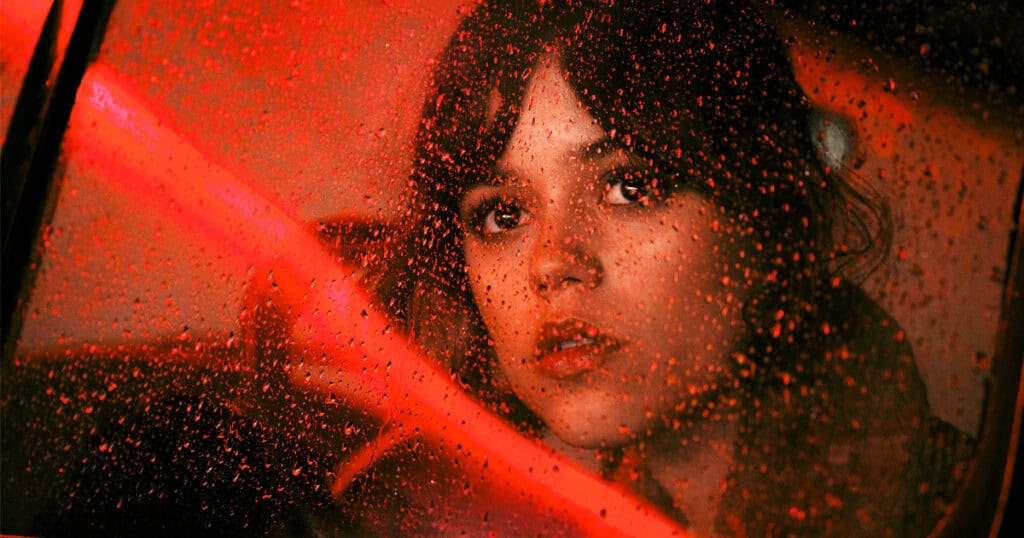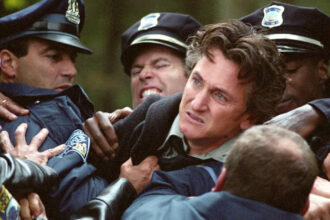

Plot Overview: In a gripping tale, Abel “the Weeknd” Tesfaye portrays a superstar entangled in a tumultuous relationship with an obsessive fan, played by Jenna Ortega.
Film Review: Abel “the Weeknd” Tesfaye seems unperturbed by the critical backlash following his mixed-reception HBO venture, The Idol. With Hurry Up Tomorrow, he plunges into acting with reckless abandon, taking on a role that many may deem excessively self-indulgent. Here, Tesfaye not only mirrors his public persona but also crafts a hyperbolic depiction of an artist whose music ignites near-cult-like devotion in his fans. An impactful scene features a song diffusing a crisis, amplifying the drama surrounding his character. This film boldly toes the line of vanity; it risks inviting ridicule for such a grand personal portrayal.
This cinematic piece appears tailor-made for Die-hard fans of The Weeknd, while others might find it a misstep akin to watching a slow-motion spectacle. Even devoted followers may grow weary of the feeble storyline—a convoluted echo of classics like Misery, Play Misty for Me, and A Star is Born. In a disappointing follow-up to Waves, which I once deemed worthy of a perfect score, director Trey Edward Shults seems to have regressed. This film often feels less like a standalone narrative, and more akin to an elongated music video designed to promote Tesfaye’s new album of the same title, lacking a semblance of artistic autonomy.
The choices of rising talents Jenna Ortega and Barry Keoghan to join this project raise eyebrows. Despite Tesfaye’s undeniable charisma, it appears insufficient to carry a narrative seemingly dedicated to his perceived tribulations. While he has an impressive musical catalogue, his on-screen presence lacks the necessary weight to convey the essence of his tortured artist archetype. His emotional struggle is depicted through an overabundance of tearful moments—an approach that quickly becomes repetitive. It’s almost comical how many times we see him teeter on the edge of tears, suggesting the script was written with a quota for emotional displays.
The story navigates Tesfaye’s battle with a mental health crisis, rooted in a difficult breakup, which leaves him struggling to voice his thoughts. Throughout his journey, he receives haunting reminders of his past via cameos by Riley Keough through images and voicemails. His heavy reliance on alcohol and drugs—often shared with his manager, played by Barry Keoghan—adds to his troubles. As he collides with Anima, portrayed by Ortega, their reckless chemistry spirals dangerously after what seems like an electrifying night out before things take a darker turn.

Ortega’s portrayal of Anima infuses moments of chaotic excitement, her character radiating with untamed joy. A standout sequence features her dancing enthusiastically to “Blinding Lights,” offering a surprisingly introspective glimpse at the song crafted by Tesfaye. As co-writer of the screenplay, one can sense his artistic fingerprints across the narrative.
Both Shults and Tesfaye seem reluctant to produce a traditional thriller. Instead, they drift into the genre without generating meaningful suspense, filling the film with odd sequences, including one where Tesfaye has an awkward conversation with his younger self—an element that quickly becomes tedious rather than intriguing. Shults employs esoteric cinematography, with shifting aspect ratios and a camera that seems perpetually on the verge of a dizzying spin, transforming what could have been an exhilarating experience into an exhausting one.
Despite the film’s shortcomings, one must hand it to The Weeknd for his audacity to step into this realm. Hurry Up Tomorrow may evoke nostalgia for the era when music stars transitioned to film, a phenomenon reminiscent of the ’80s video albums. Comparisons to past ventures—such as Don Johnson’s Heartbeat or Bruce Willis’s The Return of Bruno—further highlight the film’s potential ephemeral nature, likely to fade from memory except for those with a penchant for what some might affectionately call “bad cinema.” Ultimately, the endeavor reads less like a triumphant debut and more as an inadvertently painful experience.























